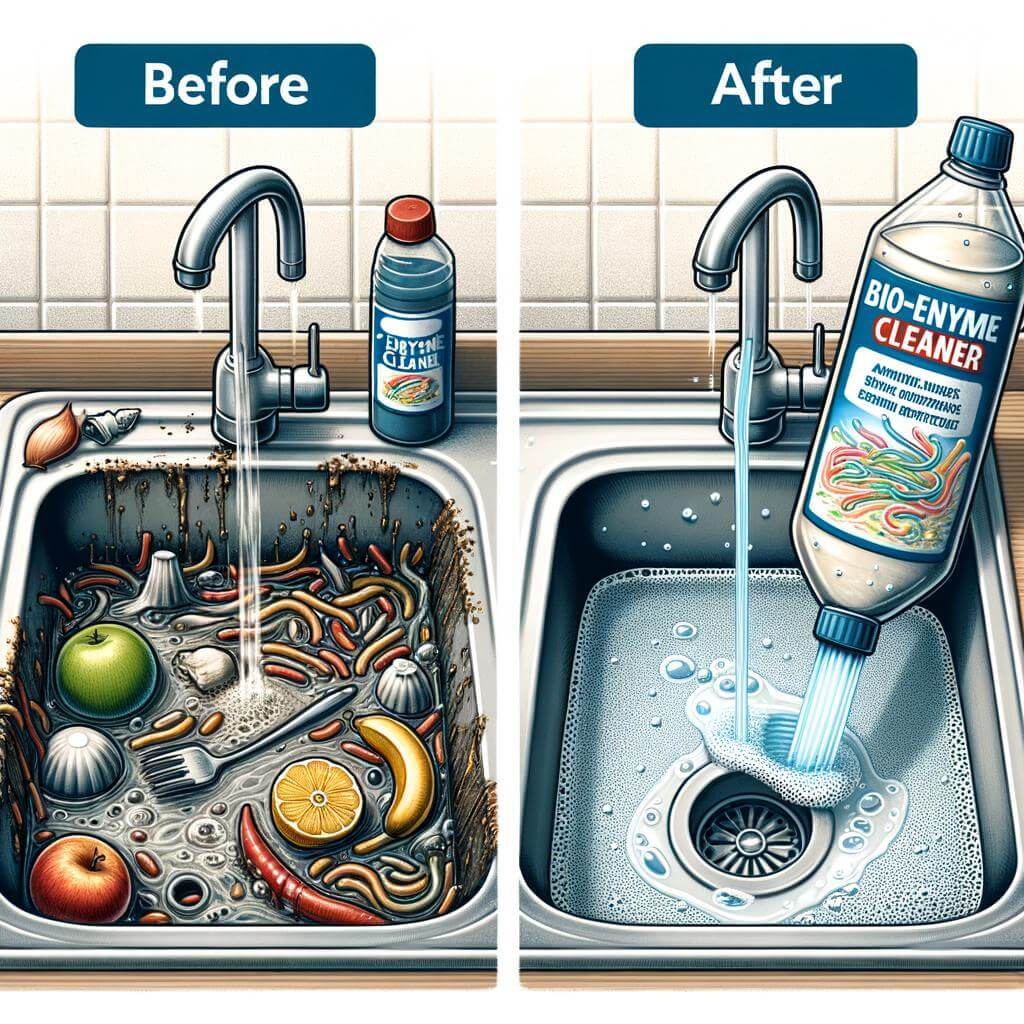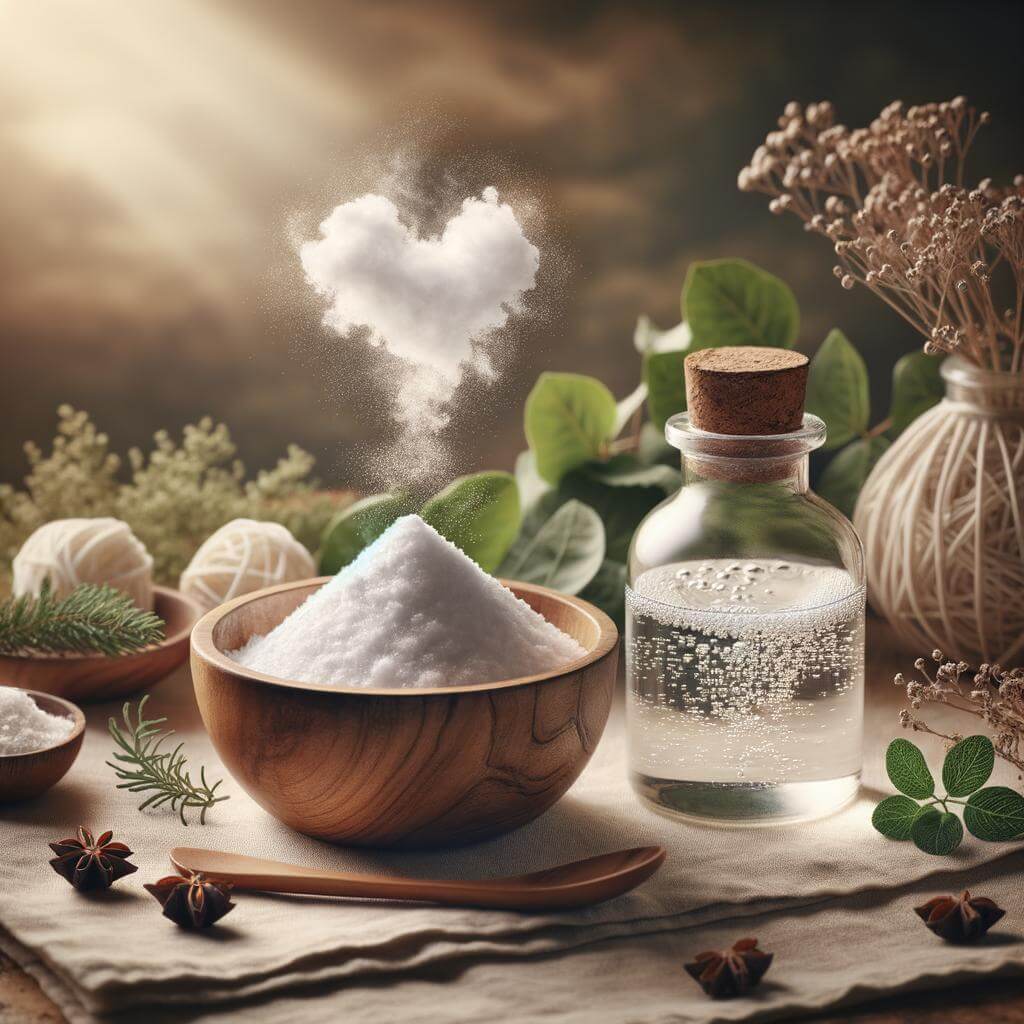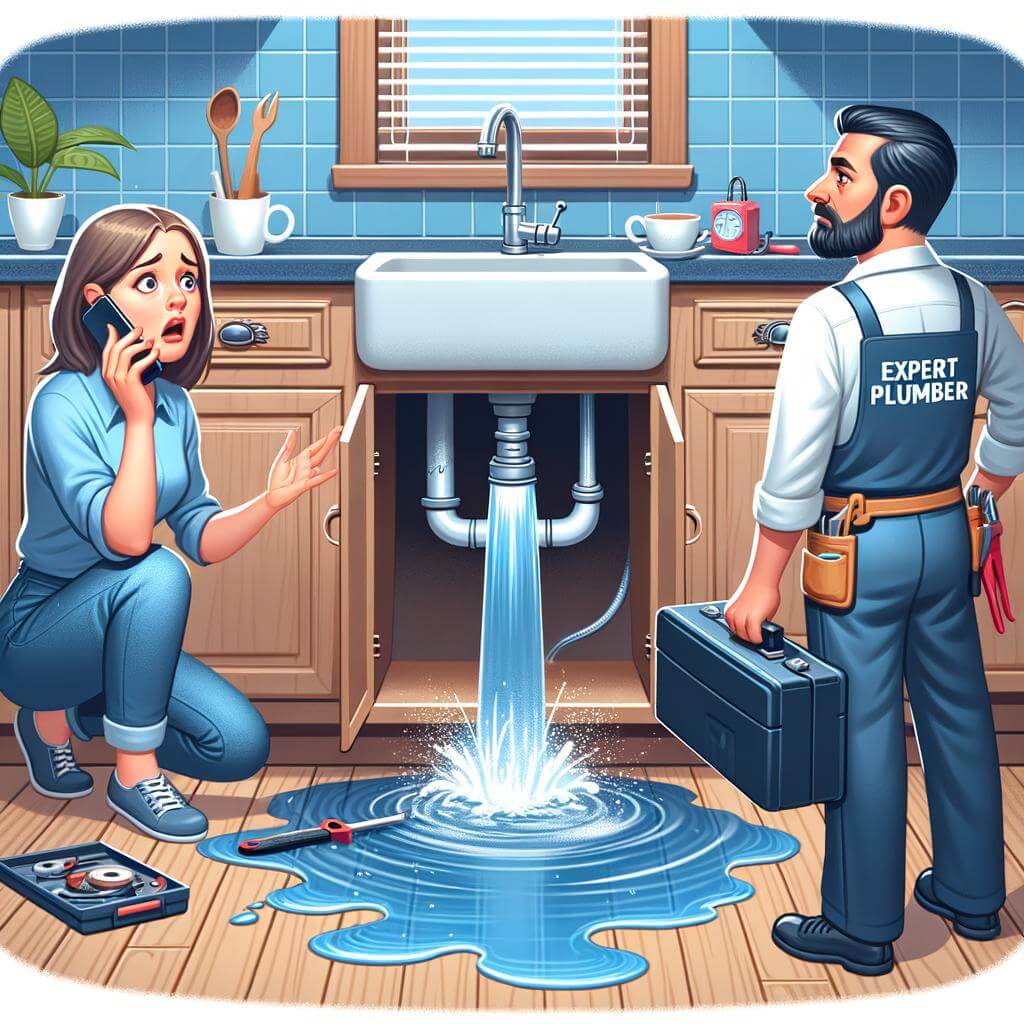Welcome! In our new post, “DIY Solutions: Eliminating Unpleasant Kitchen Sink Odors”, we aim to arm you with practical and simple tips to keep your kitchen sink fresh and odor-free. This post will provide expert opinions and fact-based information, showing you effective methods to combat those unpleasant smells that can often arise in our kitchen sinks. These DIY techniques will not only save your time and money, but also provide fast solutions using items typically found at home. So if you’re looking to maintain a fresh and clean kitchen environment, look no further. This comprehensive guide will equip you with the knowledge and skills to deal with one of the most common household issues.
Understanding the Root Cause of Unpleasant Kitchen Sink Odors
Getting to the bottom of kitchen sink odors can be a task that may seem challenging, but understanding the root causes can help immensely. Very often, foul smells from your kitchen sink are caused by decaying food particles stuck within your pipes. This becomes a breeding ground for bacteria and hence, the unpleasant aroma. Another significant cause is a dry p-trap. The p-trap is designed to hold a small amount of water that acts as a barrier between the sewer gas and your home. If the p-trap dries up, the sewer gas wafts into your home, thus causing the foul smell.
- Decaying food particles: Food wastes that are not properly grounded by the garbage disposal unit or debris that gets lodged in the drain can start rotting and produce a bad smell over time.
- Dry P-trap: If your sink is not used for a prolonged period, the water in the p-trap can evaporate, creating a passage for sewer gas to enter your home.
Occasionally, a faulty sewer line or plumbing fixtures might also cause a rotten smell. In most cases, these smells are accompanied by a slow drain. Therefore, if you notice any difference in the pace of your drain along with a foul odor, it would be a good indication that you need to check your sewer line or plumbing fixtures. Lastly, a full septic tank can also create a bad smell. This usually happens if the tank hasn’t been pumped in a while and it gets filled up, leading to the bad smell emanating from your kitchen sink.
| Possible Cause | Signs & Symptoms |
|---|---|
| Faulty Sewer Line or Plumbing Fixture | Besides a bad smell, the drain is slower than usual |
| Full Septic Tank | A rotten smell that gets worse when the sink is used |
Understanding the root cause is the first step in eliminating the unpleasant smell from your kitchen sink. Once you have pinpointed the source of the problem, you can take the necessary steps to rectify it and further prevent it from occurring in the future.
Identifying Common Smells: What Does Your Sink Smell Tell You
Often times, your sink smell can be a significant indicator of what’s going wrong in the pipes beneath. The scent of the odor can help you pinpoint the exact issue and allow you to address it accordingly. Here are a few common sink smells you might encounter:
- Rotting Food: This smell is often a sign of food debris stuck in your drain. It becomes more potent over time as the food decays and rots.
- Sewage: A sewage-like stench often hints towards a blockage in your sink’s drainage vent. This prevents sewer gases from properly escaping.
- Moldy or Musty: This smell can indicate a buildup of damp organic material, often pointing towards a slow-leaking pipe.
Understanding the root cause of your sink smell is the first step towards finding a suitable DIY solution. Fortunately, most of these issues can be tackled with simple ingredients you’re likely to find in your kitchen cupboard. For instance, a clogged drain can be cleared out with a combination of vinegar and baking soda. In case of a deeper issue such as a leaky pipe, you might need to consider calling a professional.
| Smell | Probable issue | Suggested DIY Solution |
|---|---|---|
| Rotting Food | Food debris stuck in drain | Vinegar and Baking Soda |
| Sewage | Blockage in drainage vent | Clear drain vent or call professional |
| Moldy or Musty | Slow-leaking pipe | Investigate for leaks or call professional |
Simple DIY Solutions to Remove Sink Smells
If you’ve ever been hit by a foul, musty scent coming from your kitchen sink, you know it can be a real mood killer. These odors can arise from a variety of factors: leftover food particles, mold, or even bacteria buildup. Luckily, we’ve compiled a useful list of creative ways to tackle these pesky odors through homemade solutions that are both effective and eco-friendly. Here are a few do-it-yourself methods to help you freshen up your sink without the need for harsh chemicals or expensive plumbing services.
Start off with the natural cleansing power of baking soda and vinegar. All you need to do is pour half a cup of baking soda into the drain, followed by half a cup of distilled white vinegar. Let this mix sit and work its magic for about 15 to 20 minutes, then rinse with boiling water. This combination not only deodorizes your sink, but it also helps break down food particles and sludge.
- Citrus peels: Tossing lemon, lime, or orange peels into the garbage disposal can help neutralize poor odors.
- Ice and salt: Combining ice cubes with a cup of salt can help cleanse your garbage disposal of food leftovers. The salt serves as an abrasive that scrapes off grime, while the ice helps in solidifying grease and oil.
Let’s not forget about the power of bleach. While this method should be used sparingly to avoid damaging your pipes, a small amount of diluted bleach can provide a quick fix to your smell problem. To use, simply pour a cup of bleach into a gallon of water, then slowly pour this mixture down the drain. Remember to always rinse well with lots of water after using bleach.
| Ingredients | Procedure |
|---|---|
| Baking Soda and Vinegar | Pour a 1/2 cup of each down the drain. Let sit for 20 minutes then rinse with boiling water. |
| Citrus Peels | Toss citrus peels into garbage disposal and run until gone. |
| Ice and Salt | Drop a few ice cubes and a cup of salt into garbage disposal. Run until all ice is broken up. |
| Bleach | Dilute a cup of bleach in a gallon of water. Pour mixture down the drain slowly. Rinse thoroughly after. |
In sum, while sink smells can be unpleasant and daunting, remember that there are simple and effective DIY solutions available. We hope these tips will help keep your kitchen smelling fresh and welcoming.
The Role of Bio-Enzyme Cleaners in Refreshing Your Kitchen Sink
Have you ever pondered about the magic of bio-enzyme cleaners and how they can completely eradicate unpleasant odors from your kitchen sink? These cleaners utilize friendly bacteria to decimate pungent organic matters that usually cause the offensive odors you’re trying to purge. They’re eco-friendly and highly efficient, acting as a natural alternative to harsh chemicals. The beauty of it all; they leave your sink smelling fresh and free from odor-inducing bacteria.
Chances are, you’re still relying on the traditional cleaning method—using at-home solutions like baking soda, hot water, and vinegar. While these methods can be effective at times, bio-enzyme cleaners come in handy when stubborn, lingering smells resist these general cleaning agents. The use of bio-enzymes is a two-way street; it scrubs off gross build-up and simultaneously addresses the root cause of the smell. For best results, here’s how to employ these natural warriors:
- Application Frequency: Consider bi-weekly sessions in mild cases or weekly cleaning if your sink confronts frequent organic food residues.
- Mix Concentration: Use diligence in adhering to the mixing instructions on the product’s label. Overuse won’t boost cleaning effect; it might end up going down the drain instead.
By following these simple yet efficient tips, using bio-enzyme cleaners will not just bring a refreshing aroma to your kitchen but will also maintain a healthier kitchen sink ecosystem.
| Properties | Baking Soda & Vinegar | Bio-Enzyme Cleaners |
|---|---|---|
| Effectiveness | Manageable smells | Strong and stubborn odors |
| Eco-friendly | Yes | Yes |
| Kills bacteria | Partial | Yes |
As the table illustrates, both home-made solutions and bio-enzyme cleaners present their own merits. However, for acute cases where smells persist despite conventional methods, giving bio-enzyme cleaners a try will prove beneficial.
Gentle and Natural Remedies: Baking Soda and Vinegar Magic
The beauty of baking soda and vinegar as a deodorizing duo is that they’re both safe, natural products that you likely have sitting in your pantry already. Simply pouring these two ingredients down the sink can work wonders in neutralizing unpleasant smells. You will need half a cup of baking soda and half a cup of white vinegar. Pour the baking soda down the drain followed by the vinegar, and let the magic happen. The chemical reaction between these two substances helps to dislodge grime and food particles stuck in the drain and will leave your sink smelling fresh. The steps to follow are:
- Pour down the baking soda into the drain.
- Follow it with the vinegar.
- Allow it to fizz and work its magic for 15-20 minutes.
- Rinse with hot water to wash down the residue.
Another diy method is using a mixture of baking soda, salt, and lemon peel. This not only scour away stuck-on food and grease, but also gives a pleasant citrusy smell. The extra abrasiveness of the salt and the deodorizing power of the lemon makes for a powerful grime-busting combo. There’s no standard measure for this method; you can simply throw in a handful of baking soda, a handful of salt, and a couple of lemon peels. Mix these in the sink and then rinse away with hot water for a sparkling and better-smelling drain. Let’s have a quick look at the comparative advantages of the aforementioned methods in the following table:
| Method | Pros | Cons |
|---|---|---|
| Baking Soda & Vinegar | Effective grime dislodgement, Fresh odor, Easy to follow | May require repeat treatment for stubborn grime |
| Baking Soda, Salt & Lemon Peel | Abrasive clean, Pleasant citrusy smell | May not dislodge heavy grime as effectively |
Remember, prevention is the best cure. So, try to prevent the buildup of food scraps and grease where possible to keep your drain smelling fresh all the time.
Micro Tips: Maintain Your Sink to Avoid Recurring Odors
It’s an unpleasant surprise when you lean over your kitchen sink only to be greeted by an odorous waft of mystery smells. Rotting food particles, fungus, or buildups of oil and grease in the drain are common culprits of this. With some simple tips, however, you can keep your sink clean and smell-free.
Firstly, ensure your sink is kept clean. This includes both the visible sink basin and not visible parts like the pipes beneath. Regularly rinse the sink with soapy water and a mild abrasive like baking soda. This helps to scrape off any food particles stuck in the crevices. A monthly deep cleanse with a vinegar and baking soda mix can also be incredibly effective. Just pour half a cup of baking soda into the drain, followed by half a cup of vinegar. Let this sit for 15-30 minutes and then rinse with hot water.
| Maintenance Materials | How Often? |
| Soapy Water | Daily |
| Baking Soda | Weekly |
| Vinegar + Baking Soda Mix | Monthly |
Another crucial point is to watch what you put down the drain. Some substances like coffee grounds, tea leaves, or fibrous materials like onion skins can easily get stuck in your drain causing both blockages and unpleasant smells. Instead, consider composting or discarding these materials in your regular trash.
- Avoid pouring fats, oils, and grease down the drain
- Always run water through the sink after each use
- Treat your waste disposal with special cleaning solutions occasionally
By adhering to these simple tips and remaining consistent with your sink maintenance, you can ensure your kitchen remains an inviting, stench-free environment.
Seeking Professional Help: When to Call an Expert Plumber
In some cases, even after trying home remedies, the unpleasant smells from your kitchen sink may not go away. This could be due to a more severe plumbing issue like a drainage blockage, deteriorating pipes, or a faulty sewer system. If you’ve exhausted your DIY methods and the odorous problems persist, it’s high time to bring in a professional plumber. Professional plumbers have the right tools and experience to adequately diagnose and rectify the problem efficiently. An expert can determine if issues are due to clogged pipes, damage in the drain assembly, or maybe even something wrong deeper down the line. A DIY enthusiast may excel in solving many home repair challenges, but certain cases command seasoned expertise. Troubleshooting a continuous methane gas smell, detecting a broken seal in the sink’s drainage, or noticing a raise in your water bill might indicate more serious issues that require attention. In such scenarios, consulting with a professional plumber is critical. After all, precautionary steps and a timely action can save you from costly repairs in the long run.
| Sign | Probable Reason | Require Professional Help |
|---|---|---|
| Persistent Bad Smell | Blocked Drainage | Yes |
| Methane Gas Smell | Broken Sewer Line | Yes |
| Raised Water Bill | Leaky Pipes | Yes |
| Frequent Clogging | Improper Plumbing | Yes |
Remember, persistent issues are not just annoying; they could also be a health hazard. Hence, don’t hesitate to reach out to an expert to keep your kitchen sink and, more broadly, your home, healthy and fresh.
The Conclusion
In conclusion, DIY solutions offer an efficient, cost-effective way to eliminate unpleasant kitchen sink odors, transforming your kitchen into a pleasant, refreshing space. They are easy, eco-friendly, and harness ingredients you already have in your home. With regular practice of these techniques, odors can quickly become a thing of the past. As a final reminder, preventative care is just as important as quick solutions, so be mindful of what goes down your drain. We hope this guide has been instructive, informative and empowering, giving you the tools to tackle unsavory scents head on. So roll up your sleeves, dive in and remember – a fresh, odorless kitchen sink is just a DIY solution away!









